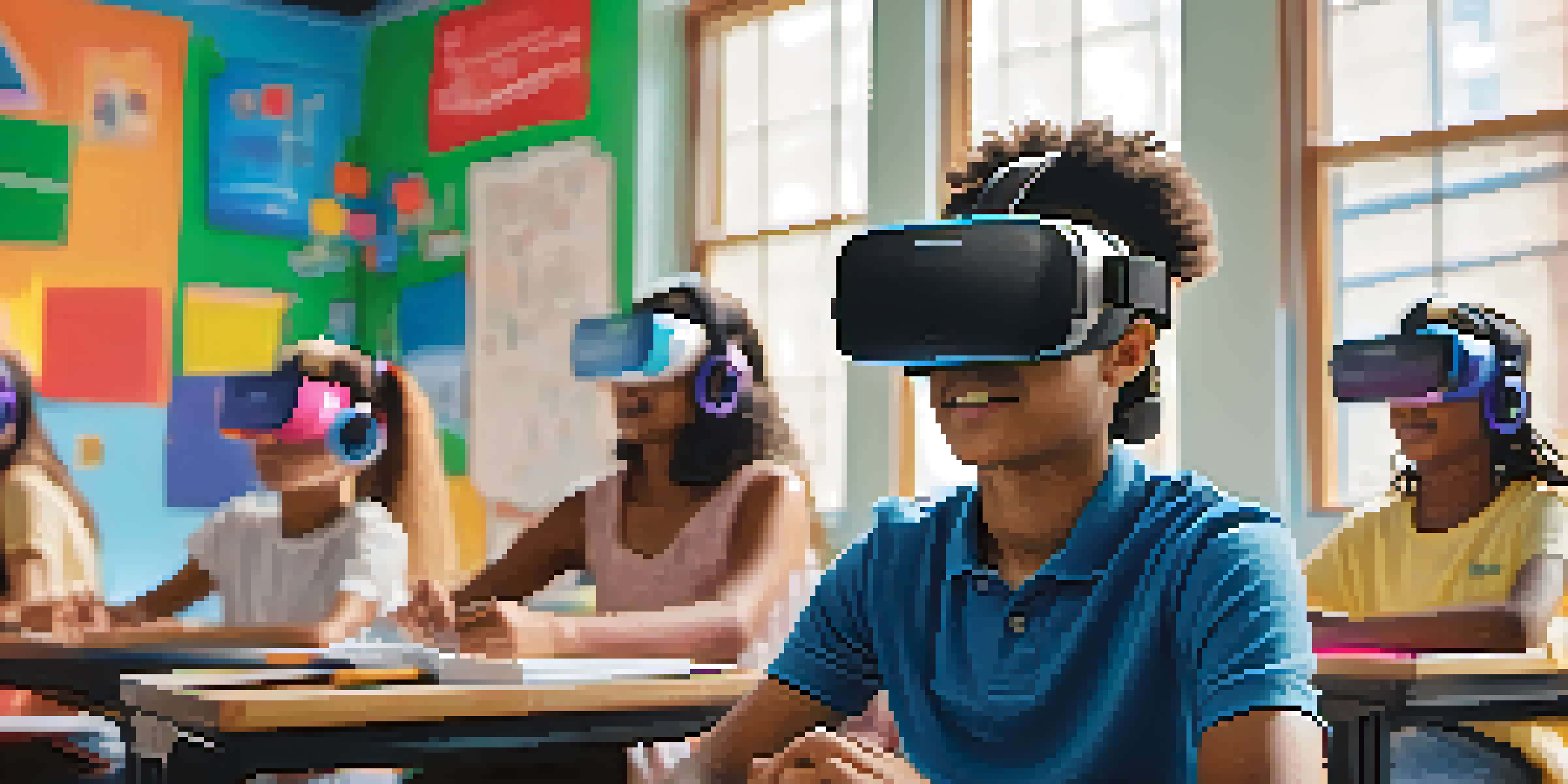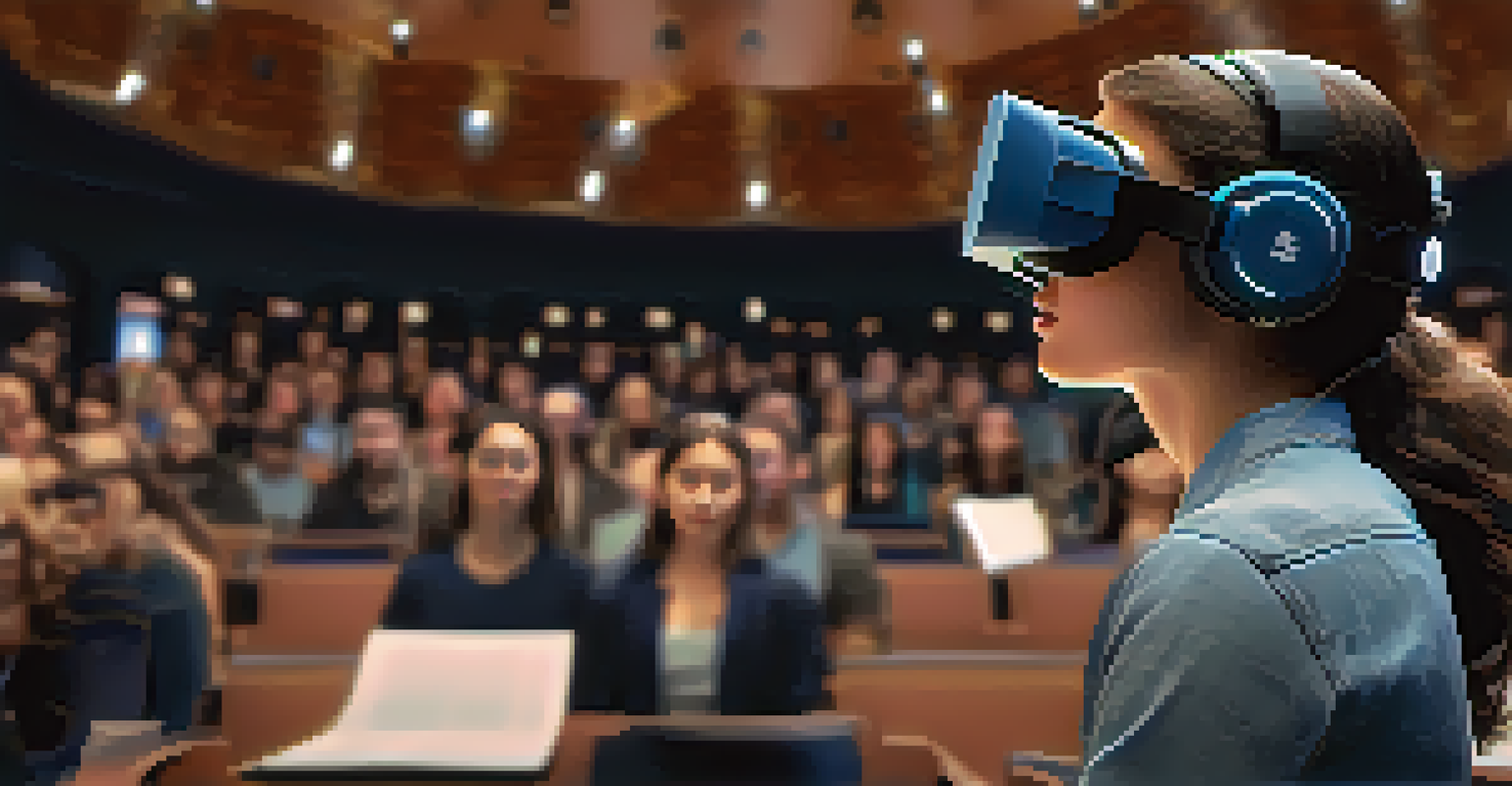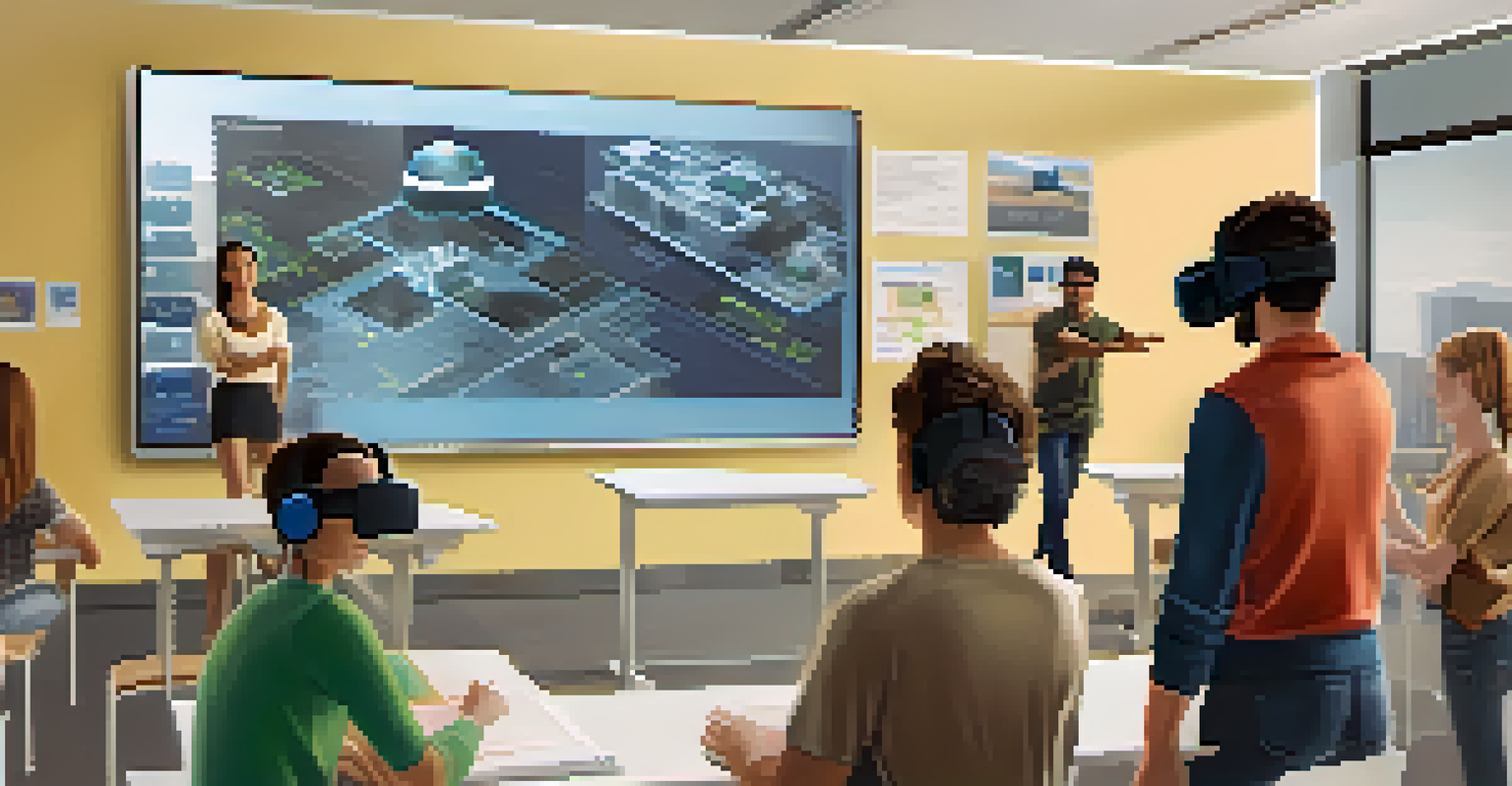Using VR for Soft Skills Development in Educational Institutions

Understanding Soft Skills and Their Importance
Soft skills are essential interpersonal skills that enable effective communication, teamwork, and problem-solving. Unlike technical skills, which can be easily measured, soft skills often rely on emotional intelligence and social interactions. In educational institutions, fostering these skills is critical as they prepare students for real-world challenges.
Soft skills are the bedrock of effective communication and collaboration in the workplace.
The importance of soft skills cannot be overstated; employers frequently prioritize these abilities during hiring processes. A candidate who communicates well and collaborates effectively can contribute significantly to a team environment. Thus, embedding soft skills training within curricula is vital for student success.
Moreover, soft skills enhance learning environments by promoting collaboration and engagement among students. By nurturing these abilities, educational institutions equip students not only for their future careers but also for meaningful interactions in their personal lives.
What is Virtual Reality (VR) in Education?
Virtual reality (VR) immerses users in a computer-generated environment, allowing them to interact with digital elements in a seemingly real way. In educational contexts, VR simulates scenarios where students can practice soft skills such as public speaking, negotiation, or teamwork. This immersive experience can deepen understanding and retention of these skills.

For example, a student can engage in a simulated job interview in a VR setting, where they receive instant feedback on their performance. This hands-on approach contrasts starkly with traditional classroom methods, making learning more engaging and effective. By employing VR, educators can create a safe space for students to experiment with and refine their soft skills.
Soft Skills Are Essential for Success
Employers prioritize soft skills like communication and teamwork during hiring, making their development crucial in education.
Additionally, VR can cater to diverse learning styles, accommodating students who may struggle with conventional teaching methods. It offers an interactive platform that can bring abstract concepts to life, making learning both fun and impactful.
Benefits of Using VR for Soft Skills Training
One of the primary benefits of using VR in soft skills training is the ability to practice in a risk-free environment. Students can make mistakes and learn from them without the pressure of real-world consequences. This aspect is crucial in building confidence and competence.
The future of education lies in the integration of technology and innovative teaching methods that foster essential skills.
Moreover, VR provides personalized learning experiences, allowing students to progress at their own pace. For instance, a student who excels at communication may focus more on teamwork exercises, while another might need additional practice in conflict resolution. This tailored approach can enhance the overall effectiveness of soft skills training.
Finally, the immersive nature of VR captures students' attention and fosters a deeper connection to the material. This engagement can lead to higher retention rates and a more profound understanding of soft skills, setting students up for success in their future endeavors.
Real-World Applications of VR in Education
Several educational institutions have already begun implementing VR technologies to enhance soft skills training. For instance, some colleges use VR simulations to prepare students for real-life scenarios, such as dealing with difficult customers in a retail setting. This practical application helps bridge the gap between theory and practice.
Another example is a language school that employs VR to create immersive environments where students can practice conversational skills with virtual characters. This hands-on approach helps learners gain confidence in their speaking abilities and become more adaptable in various social situations. Such innovative applications demonstrate the potential of VR in enhancing soft skills.
VR Enhances Soft Skills Training
Virtual reality offers immersive experiences that allow students to practice soft skills in a risk-free environment.
Moreover, companies are leveraging VR for employee training, showing that the benefits extend beyond educational institutions. This trend indicates a growing recognition of the importance of soft skills in professional settings, further emphasizing the need for effective training methods.
Challenges in Implementing VR in Education
Despite its numerous benefits, implementing VR in educational institutions comes with challenges. One of the primary hurdles is the cost associated with acquiring VR equipment and software. Many schools may struggle to justify this investment, especially when budgets are tight.
Additionally, there may be a lack of trained personnel who can effectively integrate VR into existing curricula. Educators need to be equipped with the necessary skills to design and facilitate VR experiences that align with learning objectives. Without proper training, the potential of VR in soft skills development may not be fully realized.
Lastly, some students may experience discomfort or motion sickness when using VR technology. This issue can limit participation and hinder the overall effectiveness of VR training programs. Addressing these concerns is essential for maximizing the benefits of VR in educational settings.
Future Trends in VR and Soft Skills Education
As technology continues to evolve, the future of VR in soft skills education looks promising. We can expect advancements that make VR more accessible and affordable for educational institutions. Innovations in hardware and software will likely enhance the user experience, making it a more viable option for schools.
Moreover, the integration of artificial intelligence (AI) with VR could revolutionize soft skills training. AI can analyze student interactions and provide tailored feedback, creating a more personalized learning experience. This synergy between VR and AI holds significant potential for enhancing the effectiveness of soft skills development.
Challenges of VR in Education
Despite its benefits, implementing VR faces hurdles such as high costs and the need for trained personnel.
Finally, as acceptance of VR in education grows, we may see a broader curriculum that incorporates these technologies across various subjects. By embracing VR as a tool for soft skills training, educational institutions can better prepare students for the complexities of the modern workforce.
Conclusion: Embracing VR for Holistic Education
In conclusion, the integration of VR in educational settings represents a transformative approach to soft skills development. By providing immersive, engaging experiences, VR can help students practice essential skills in a safe environment. As we've discussed, the benefits are numerous, from increased confidence to personalized learning paths.
While challenges exist, the potential of VR to enhance soft skills training cannot be ignored. Educational institutions that embrace this technology will not only prepare students for future careers but also enrich their overall learning experience. The journey toward integrating VR into education is just beginning, and the possibilities are exciting.

Ultimately, the goal is to create well-rounded individuals who can navigate the complexities of life with confidence and skill. As we move forward, it's crucial to continue exploring innovative methods, like VR, that can help achieve this vision.